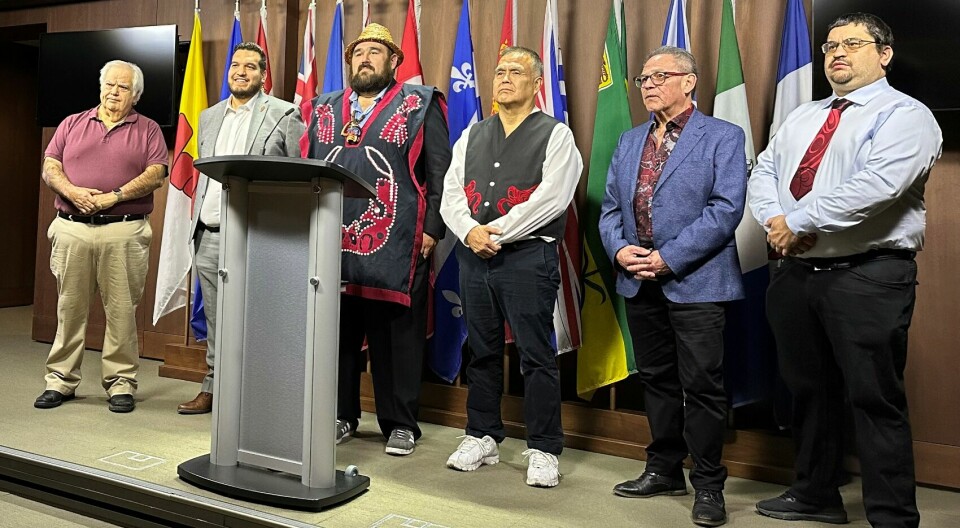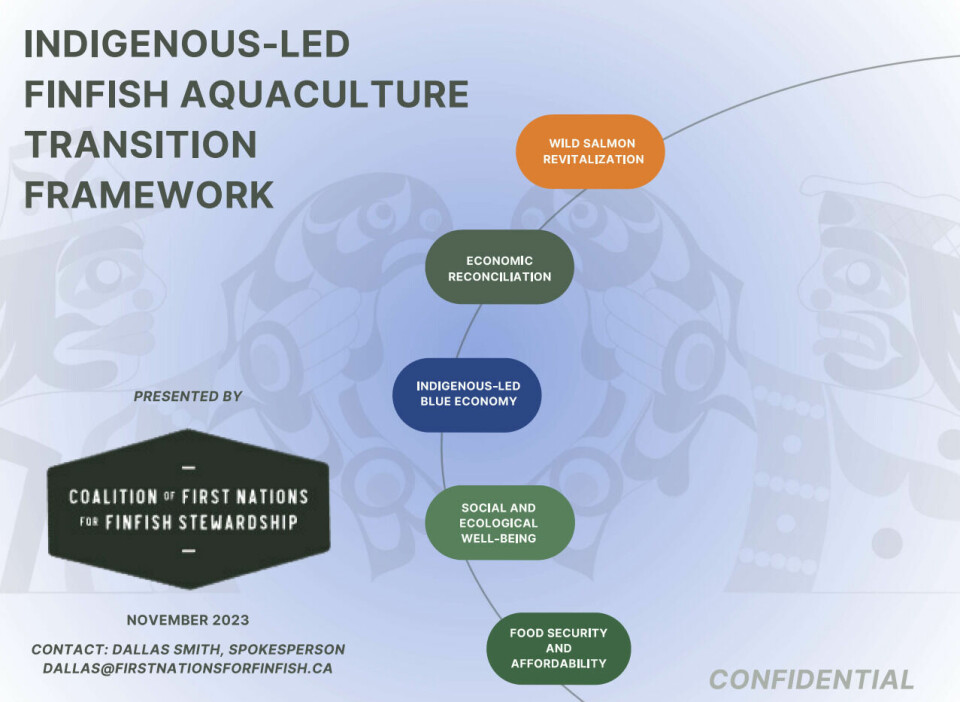
BC First Nations launch science-backed plan for in-ocean salmon farming
Representatives of First Nations (FNs) in British Columbia have visited Parliament Hill in the Canadian capital, Ottawa, to launch their plan for “modern, sustainable, in-ocean salmon farming” in their traditional territories.
The Coalition of First Nations for Finfish Stewardship (FNFFS), comprising coastal FNs who support and benefit from salmon farming, has developed a Nations-led, science-backed, and industry supported plan for salmon aquaculture that it says is responsible, realistic, and achievable.
The FNFFS, which has played a crucial role in tempering the federal government’s plans to “transition” open net pen salmon farming in BC, says its plan will enable wild salmon revitalisation, economic reconciliation with FNs, and an Indigenous-led Blue Economy.
It will also ensure social and ecological well-being for the FNFFS territories and communities, and food security and affordability for their communities and all Canadians.
We will lead
“As conservationists, our coastal Nations have travelled thousands of kilometres to Parliament Hill to present a solution to what’s been a divisive issue in BC: a real, achievable plan for salmon farming that enables our remote communities to continue to thrive socially, economically, and culturally while working to revitalise wild salmon,” said Dallas Smith, spokesperson for the Coalition.
“We have proven we can be both salmon stewards and salmon farmers in our sovereign territories, and by asserting our rights and title with this comprehensive plan, we fully intend to lead this process to achieve what’s best for our communities.”

The plan was presented to Canadian fisheries minister Diane Lebouthillier last week. The FNFFS says its implementation would ensure that the future of salmon farming in BC is led by the FNs in whose territories the farms operate while retaining good, sustainable, year-round jobs and building economic and scientific capacity in Indigenous communities. It also integrates the vision for a new Indigenous Centre for Aquatic Health Sciences (iCAHS) based in Campbell River, BC.
99% employment and no suicides
“Because of the work and dignity that comes with the salmon farming industry, we have had no suicides in my community of Klemtu for the past 18 years. Think about that,” said Isaiah Robinson, deputy chief councillor for Kitasoo Xai’xais Nation, located 500 miles north of Vancouver, on BC’s Central Coast. “My community now has 99% employment and 51% of our income comes from the salmon farming sector. It makes no sense to shut it down. There is no industry that can fill that space.”
The FNFFS plans include giving each Rightsholder Nation the power to approve licensing conditions for farms in its territory, and the use od Indigenous-led science with traditional knowledge to monitor sea lice counts, conduct water samples, and measure oceanic conditions in partnership with iCAHS.
Wild salmon risk assessments would minimise unacceptable interaction between farmed and wild fish.
Nine-year licences
The FNFFS wants farm licences reissued for a minimum of nine years from the first quarter of next year 2024 with intermittent options for FNs to review conditions. Sacked former fisheries minister Joyce Murray, who had supported the closure of 19 salmon farms in BC's Discovery Islands by her predecessor Bernadette Jordan, renewed licences for BC’s remaining 79 salmon farms in June last year, but only for two years.
The FNFFS argues that longer licences would support investor confidence and sector stability, encourage investment in new technologies and infrastructure, and give time for rightsholder Nations to conduct research and trials in their territories.
The Coalition also wants a more streamlined approval process for farms.
Government must play part
“With new technology and best practices, and the guardianship and monitoring of our Nations, the salmon farming industry is even more modern than it was 10 or even five years ago. Salmon farmers have innovated far more quickly than any other industry I work with, and at our request,” said Smith. “But our Nations want to keep working with the industry to truly elevate the potential of our rich marine spaces. To do that, we need the government to also partner with us sit together at the table to implement this plan for modern, sustainable, in-ocean salmon farming that provides a realistic solution for our Nations.
“If Canada is going to walk the talk on true reconciliation, I think every Canadian would agree that the future of modern salmon farming in BC must be shaped by the coastal First Nations in whose territories the farms are located.”






















































